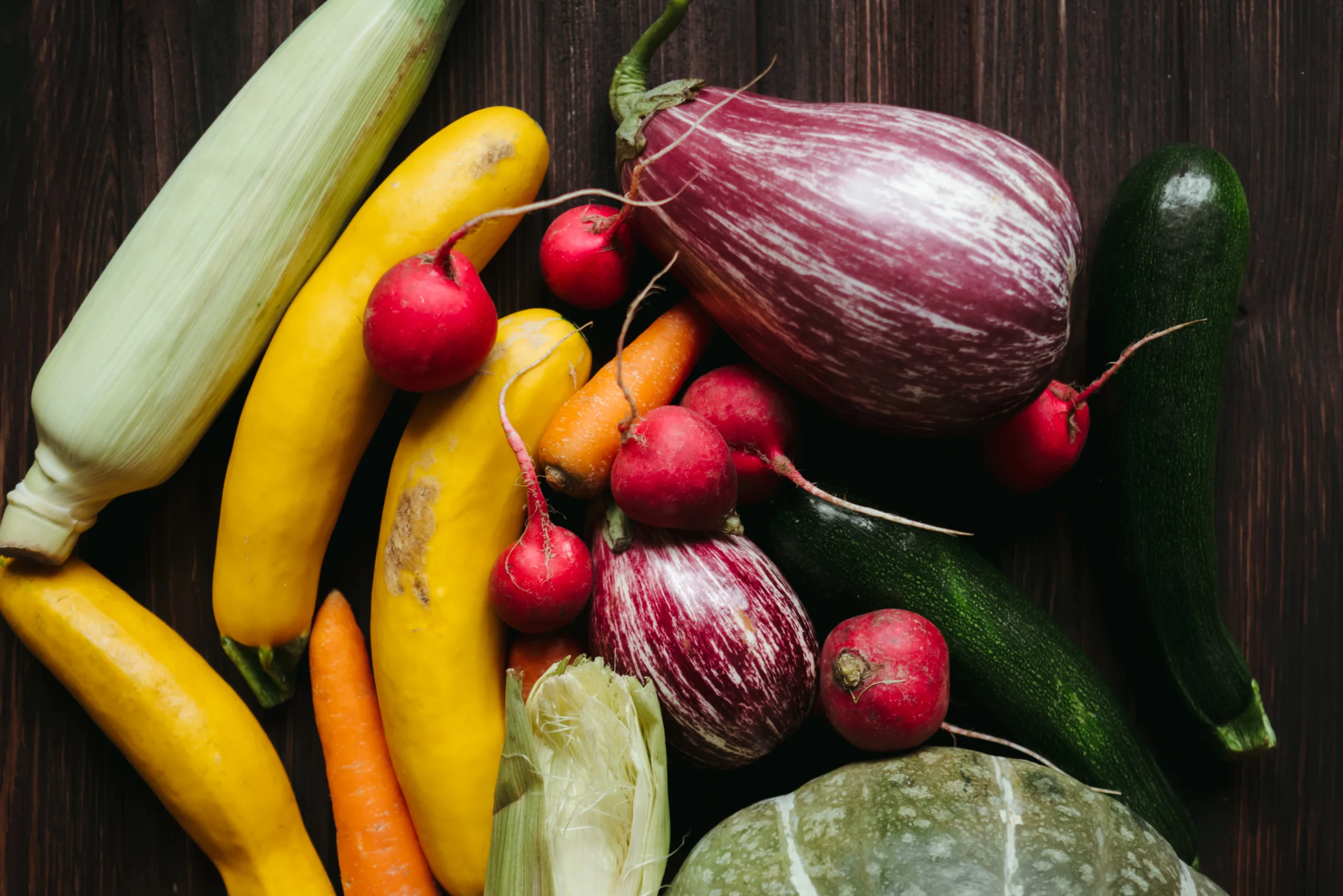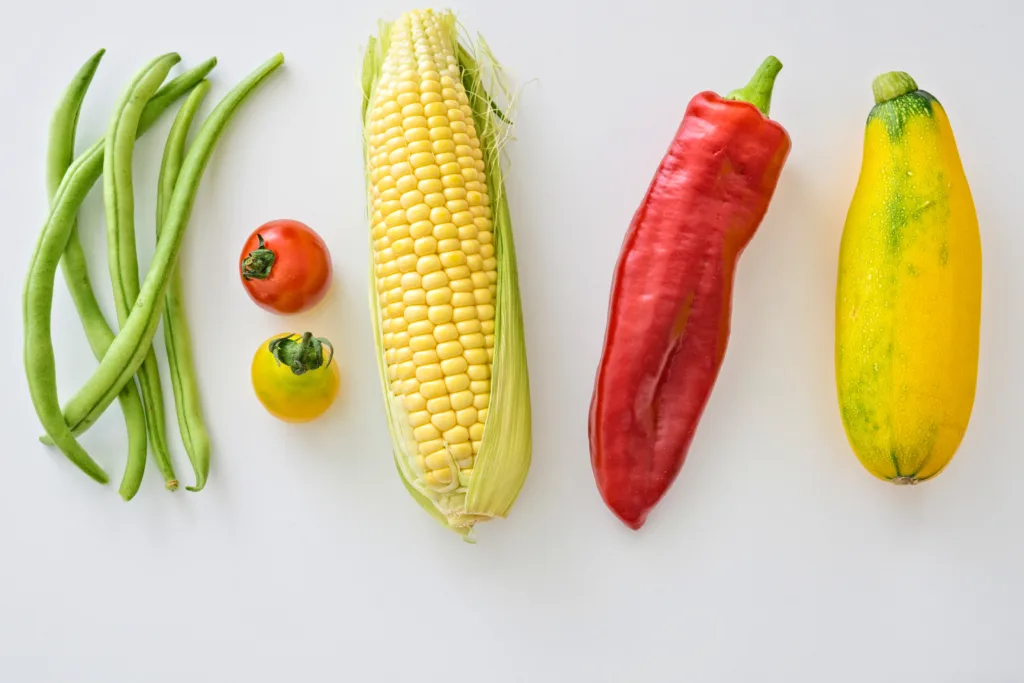Are you looking for a delicious and nutritious vegetable to add to your Low FODMAP diet? Zucchini may be the perfect addition! It’s low in calories and high in nutrients, but is it low FODMAP? In this article, we’ll explore the FODMAP content of zucchini, how to prepare it for a Low FODMAP diet, and some simple recipes you can use. Read on to find out if zucchini is suitable for your Low FODMAP needs!
Yes, zucchini is low FODMAP and considered safe for individuals following a low FODMAP diet. It can be eaten raw or cooked in dishes such as stir-fries, salads, and soups.
What is FODMAP?
FODMAP stands for fermentable oligosaccharides, disaccharides, monosaccharides, and polyols. It is a group of short-chain carbohydrates found in many foods. These carbohydrates are poorly absorbed in the small intestine and can cause digestive discomfort in some people. FODMAPs can be difficult to digest because they are fermented by bacteria in the gut, leading to symptoms such as bloating, gas and abdominal pain. This type of diet has become increasingly popular in recent years as a way to help manage irritable bowel syndrome (IBS) symptoms. A low FODMAP diet involves eliminating or reducing certain high-FODMAP foods from your diet for a period of time and then gradually reintroducing them. By avoiding certain foods that are known to trigger digestive symptoms, you may be able to reduce or manage your IBS symptoms more effectively.
It is important to note that everyone is different and what works for one person may not work for another. Consult with a healthcare professional before starting any restrictive diet such as a low FODMAP diet.
FODMAP Content of Zucchinis
Zucchinis are often considered a low FODMAP food, as they contain a moderate amount of oligosaccharides. They can be eaten freely in amounts up to 1/2 cup or 75 grams. Larger servings may contain excessive amounts of FODMAPs and should be avoided by those following a low FODMAP diet.
The major FODMAPs in zucchinis are fructans, which make up the majority of their carbohydrate content. They also contain small amounts of galacto-oligosaccharides (GOS) and polyols (sorbitol and mannitol).
Zucchinis can be enjoyed in a variety of dishes, such as soups, salads, stir-fries or grilled vegetables. They can also be used as a substitute for higher FODMAP noodles or pasta in some recipes. To reduce the FODMAP content further, it is best to remove the skin and seeds before cooking.
Click here to preview your posts with PRO themes ››
Overall, zucchinis are an excellent choice for those following a low FODMAP diet and can be enjoyed in moderation as part of an overall healthy diet.
How Much Zucchini Can I Eat on a Low FODMAP Diet?
Eating zucchini on a low FODMAP diet is possible, but it is important to understand how much you can eat. Zucchinis are high in the FODMAP fructan, so it is important to keep your portion sizes small. It is recommended that people on a low FODMAP diet limit their intake of zucchini to 1/2 cup (75 g) per serving. This should be enough for most people to enjoy the flavor of zucchini without exceeding their daily FODMAP limits.
It is also important to note that different varieties of zucchini may contain different amounts of fructan. For example, yellow or golden zucchinis tend to have a higher concentration of fructan than green zucchinis. Therefore, if you find that you are sensitive to higher levels of fructans, it may be beneficial to opt for green zucchinis instead of yellow or golden varieties.
In addition, it is important to remember that the method in which you prepare your zucchini will also affect its FODMAP content. For example, boiling and baking have been shown to reduce the amount of FODMAPs in foods, while frying and sautéing can increase the levels of FODMAPs present in food. Therefore, if you are looking for ways to reduce the amount of FODMAPs present in your meal, try boiling or baking your zucchini instead of frying or sautéing it.
Overall, eating zucchini on a low FODMAP diet is possible as long as you are mindful about how much you eat and how you prepare it. Stick with 1/2 cup (75 g) servings and opt for green varieties when possible and boil or bake rather than fry or sauté for best results.
Can I Eat Zucchini if I Have IBS?
Yes, you can eat zucchini if you have Irritable Bowel Syndrome (IBS). This is because zucchini is considered a low-FODMAP food. FODMAP stands for Fermentable Oligo-, Di-, Mono-saccharides and Polyols. These are short-chain carbohydrates that are poorly absorbed in the small intestine. Eating foods that are high in FODMAPs can be difficult for people with IBS, as they can cause abdominal pain, bloating, gas and other symptoms of IBS. Zucchini, however, is a low-FODMAP food, which makes it an ideal choice for people with IBS.
Click here to preview your posts with PRO themes ››
It is important to note that while zucchini itself is low in FODMAPs, how it is prepared can affect its FODMAP content. Be sure to avoid any recipes that call for high-FODMAP ingredients such as garlic or onions. Additionally, cooking methods such as boiling or frying may increase the FODMAP content of zucchini. Therefore, it is best to opt for steaming or baking when preparing zucchini dishes if you have IBS.
In summary, yes you can eat zucchini if you have IBS as long as it is prepared properly and does not contain any high-FODMAP ingredients. Zucchini is a great way to add flavor and nutrition to your diet without triggering your symptoms of IBS.

The Benefits of Eating Zucchini on a Low FODMAP Diet
Eating zucchini on a low FODMAP diet can provide a number of health benefits for those who suffer from digestive issues. Zucchinis are low in FODMAPs, which are short-chain carbohydrates that can trigger digestive symptoms in many people. By avoiding these carbohydrates, individuals can reduce their risk of experiencing bloating, gas, abdominal pain, and other symptoms associated with irritable bowel syndrome (IBS). Zucchini is also high in dietary fiber, which helps to promote healthy digestion. Additionally, the vegetable is rich in vitamins and minerals such as vitamin A and potassium.
In addition to its nutrient content, zucchini can be prepared in a variety of ways. It can be cooked as a side dish or added to soups and stews for extra flavor. It can also be used as an ingredient in main dishes such as zucchini noodles or casseroles. This makes it possible to incorporate zucchini into your meals while still following a low FODMAP diet. As an added bonus, zucchini is an affordable vegetable that is readily available at most grocery stores.
Overall, eating zucchini on a low FODMAP diet can provide several benefits to those who suffer from digestive issues. It is low in FODMAPs and high in dietary fiber and other essential nutrients. Additionally, it is easy to incorporate into meals and is affordable too.
Are There Any Alternatives To Zucchini If It’s Not Low FODMAP?
If you are looking for a low FODMAP alternative to zucchini, there are several options available. Eggplant, summer squash, and bell peppers are all low FODMAP vegetables that can be used in place of zucchini in many recipes. Additionally, cauliflower can be used as a substitute for zucchini in certain dishes such as stir-fries or quiches. You can also use potatoes, sweet potatoes, or other root vegetables instead of zucchini in many dishes.
Click here to preview your posts with PRO themes ››
For those who are not following a low FODMAP diet, other vegetables such as broccoli, kale, and spinach can be used in place of zucchini. Mushrooms also make an excellent alternative to zucchini as they have a similar texture when cooked. Tomatoes also make an excellent substitute for zucchini as they have a similar flavor profile and can be substituted in many recipes.
Finally, if you are looking for something more unique than the traditional vegetable-based alternatives to zucchini, grains like rice or quinoa can make excellent substitutes in some dishes. Additionally, legumes such as lentils and chickpeas are excellent sources of protein and fiber that can be used in place of zucchini for a nutritious meal option.
Consumption
When eating zucchini on a low FODMAP diet, it is important to consider the portion size. Zucchini is a low FODMAP food, however, consuming too much at once can cause symptoms to flare up. Therefore, it is best to start with a small portion and gradually increase as tolerated. In general, a single serve of zucchini should be no more than 1 cup (150g) cooked or 2/3 cup (100g) raw.
Preparation
It is also important to consider how the zucchini is prepared. Roasting, steaming and grilling are all good cooking methods as they do not introduce extra high FODMAP ingredients into the dish. Avoid boiling zucchini as this can increase the FODMAP content significantly. Additionally, avoid adding high FODMAP ingredients such as garlic and onion when preparing zucchini dishes.
Serving Suggestions
Finally, it is important to think about what other ingredients are served with the zucchini. Low FODMAP serving suggestions include dishes such as stir fries with low FODMAP vegetables such as bell peppers and carrots; or adding zucchini noodles to a low FODMAP pasta sauce. Zucchini also goes well with proteins such as fish or chicken that have been cooked in a low FODMAP marinade or sauce.

Conclusion
Zucchini is considered low FODMAP. It can be enjoyed as part of a balanced diet and is suitable for those on a low FODMAP diet, in moderation. Individuals should still be mindful of their portion sizes when consuming zucchini, and ensure not to exceed the recommended serving size.
It is important for individuals to follow the advice of their healthcare practitioner when it comes to nutrition, including dietary modifications. Eating a variety of low FODMAP fruits and vegetables, including zucchini, can help ensure that individuals are getting adequate nutrition while still adhering to the restrictions of the diet.
Overall, zucchini is a great addition to any meal plan due to its nutrient-dense profile and versatility in cooking. Even those following a low FODMAP diet can enjoy this vegetable in moderation without any adverse consequences.

